History
Sea World Marine Park commenced operations in 1971 and while initial operations included the marine sciences team participating in marine animal rescues, it wasn’t until 1988 that the not-for-profit Sea World Foundation (as we now know it) became an official organisation.
Initially operating as the Neptune Oceanic Foundation from 1988, the organisation became dedicated to the rescue, research and conservation efforts of marine life, with a focus on the Gold Coast and surrounding areas.
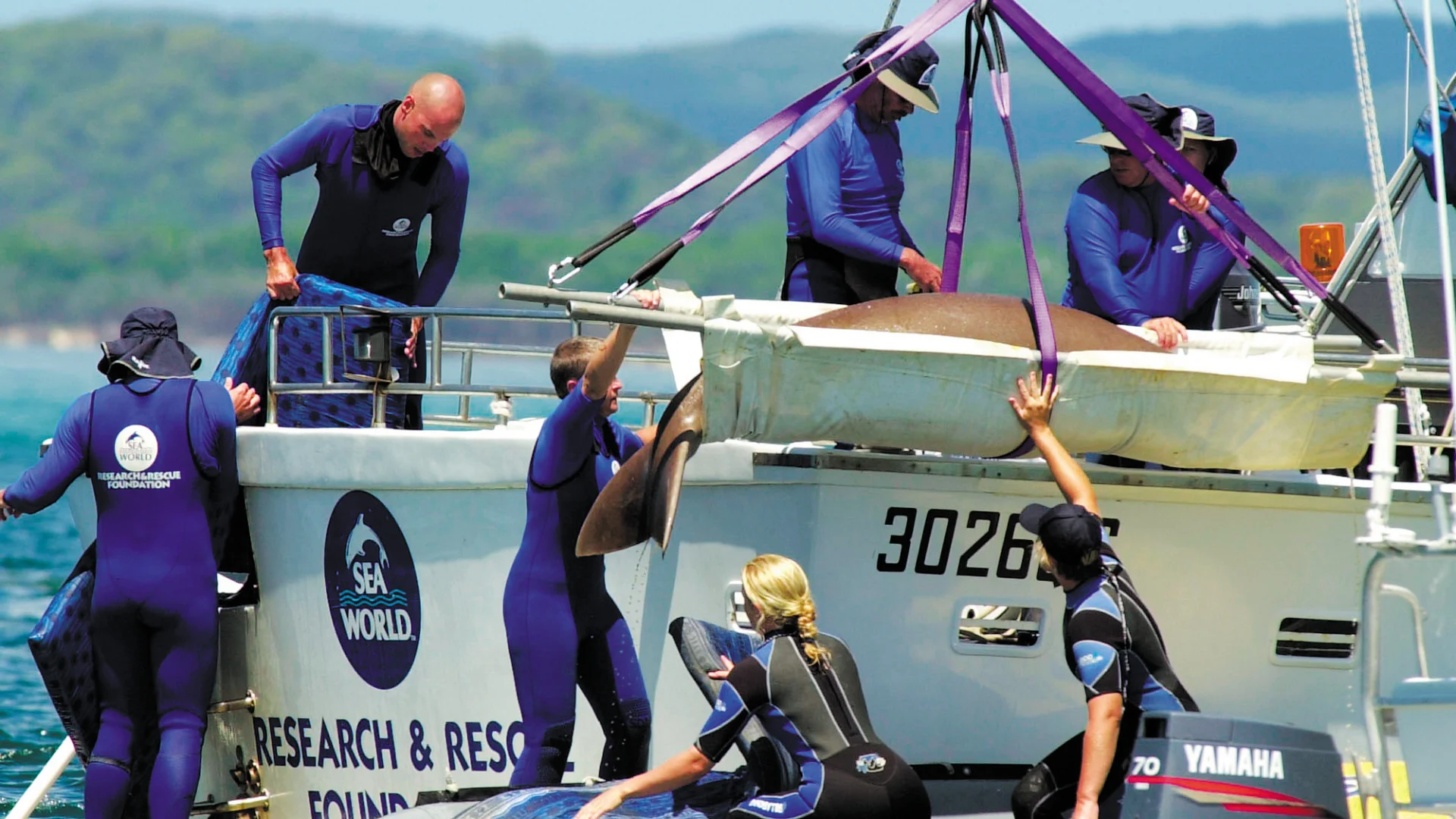
In 1993, the Neptune Oceanic Foundation was renamed to the Sea World Research & Rescue Foundation with the organisation becoming an approved research institute growing to include a scientific advisory committee who were enlisted to identify and distribute funding to research projects on marine vertebrates.
To align with the updating of the charity’s constitution in 2021, the organisation simplified the name to Sea World Foundation to greater represent the wider range of research, rescue and conservation efforts being undertaken.
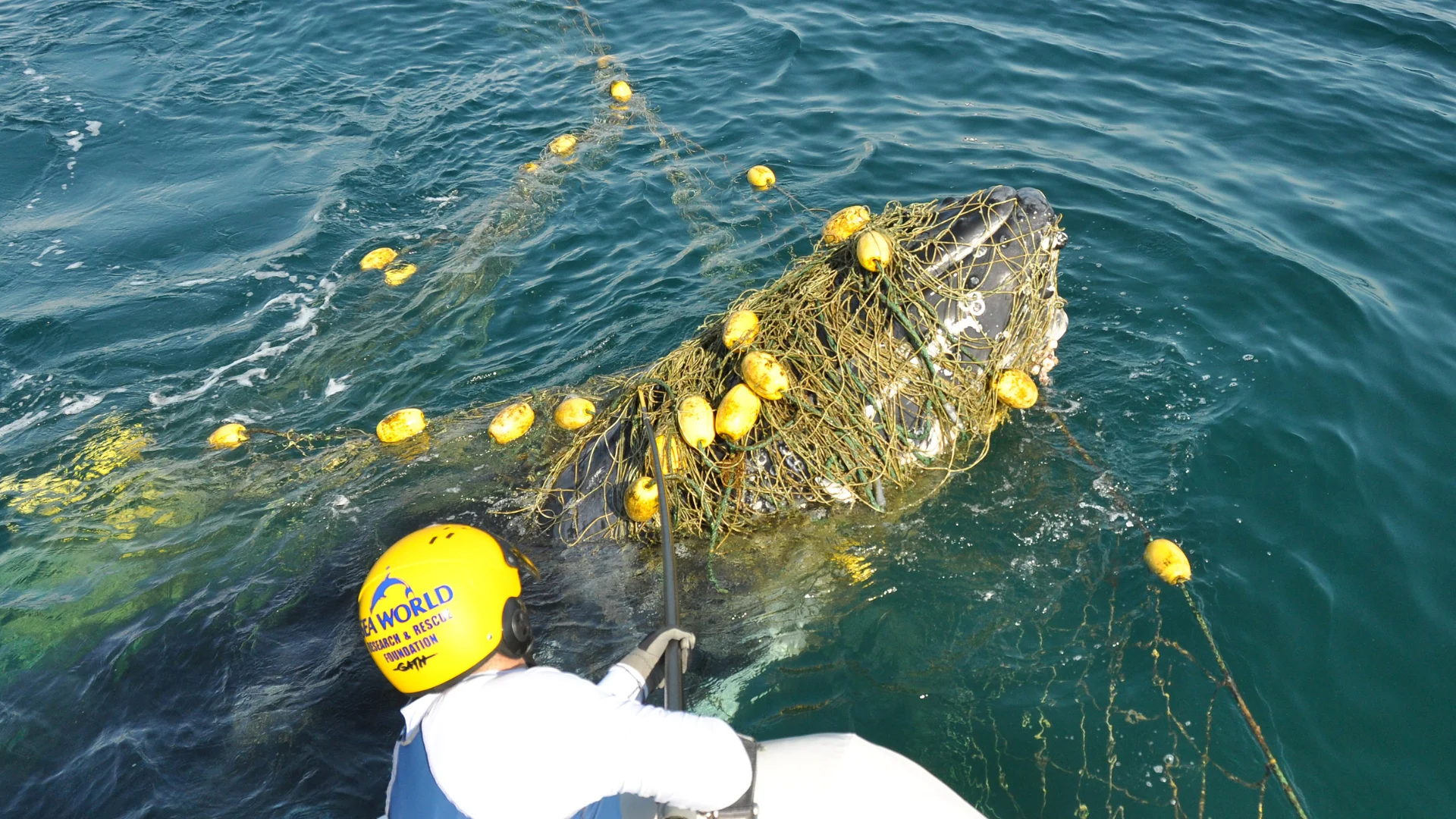
Pioneering Marine Animal Rescues
The Sea World Foundation has been instrumental in pioneering new rescue techniques and equipment to assist marine animals in dire situations.
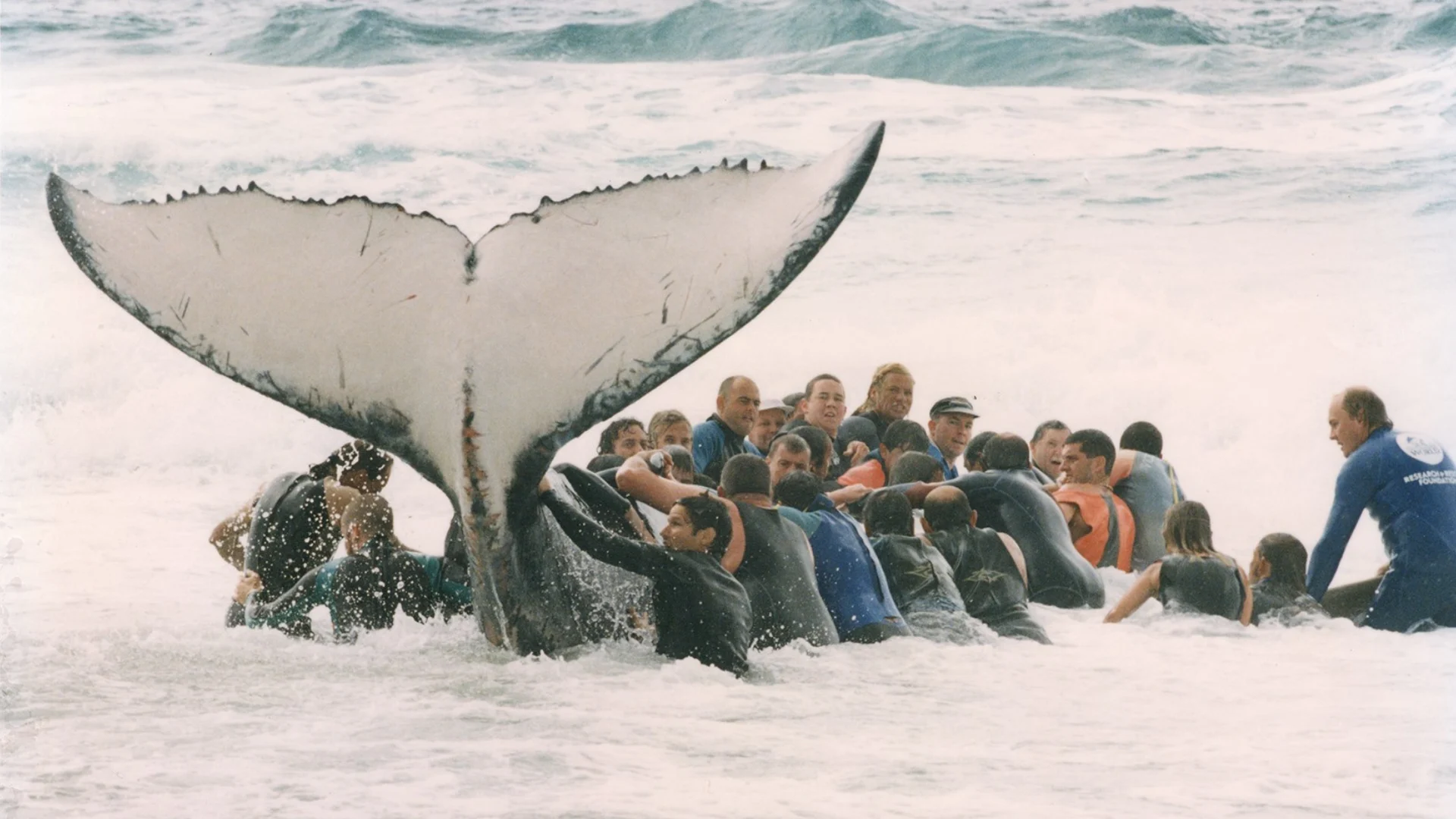
Humpback Whales
In August 1991, the Sea World Foundation team conducted a world-first operation to successfully tow a 9-metre humpback whale off Peregian Beach on the Sunshine Coast.
The 36-hour operation garnered international recognition with the team creating bespoke towing ropes and slings which were placed underneath the whale’s pectoral fins allowing for the large rescue vessel, Sea World One to tow the whale off the beach.
This technique has since been utilised across the globe to assist with humpback whales who become stranded. The Sea World Foundation team used this technique in 2014 to successfully tow a stranded whale off Palm Beach.
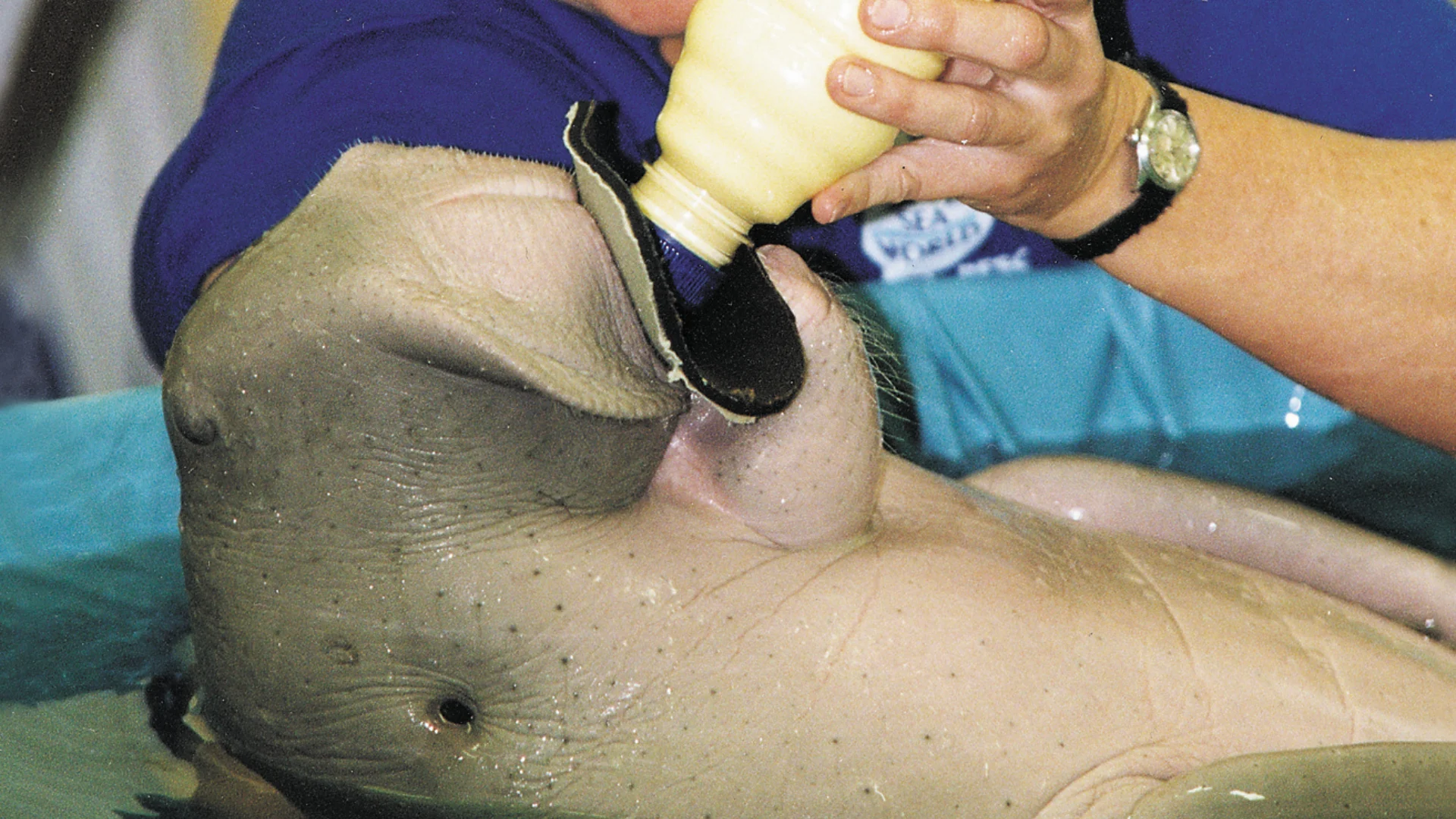
Dugongs
In 1998, the Sea World Foundation completed another world-first in marine mammal rescue when they raised, rehabilitated and released a juvenile dugong who was found stranded and separated from his mum at Forrest Beach, North Queensland.
Following his rescue, Pig, as the dugong was affectionately named spent the next several months at Sea World’s marine hospital where the dedicated team hand raised, and bottle fed the month-old calf back to full health before returning to Moreton Bay.
Unfortunately, Pig was found washed ashore six months post release and the decision was made for him to reside at Sea World. Pig was moved to Sealife Sydney Aquarium in 2008 where he still resides.
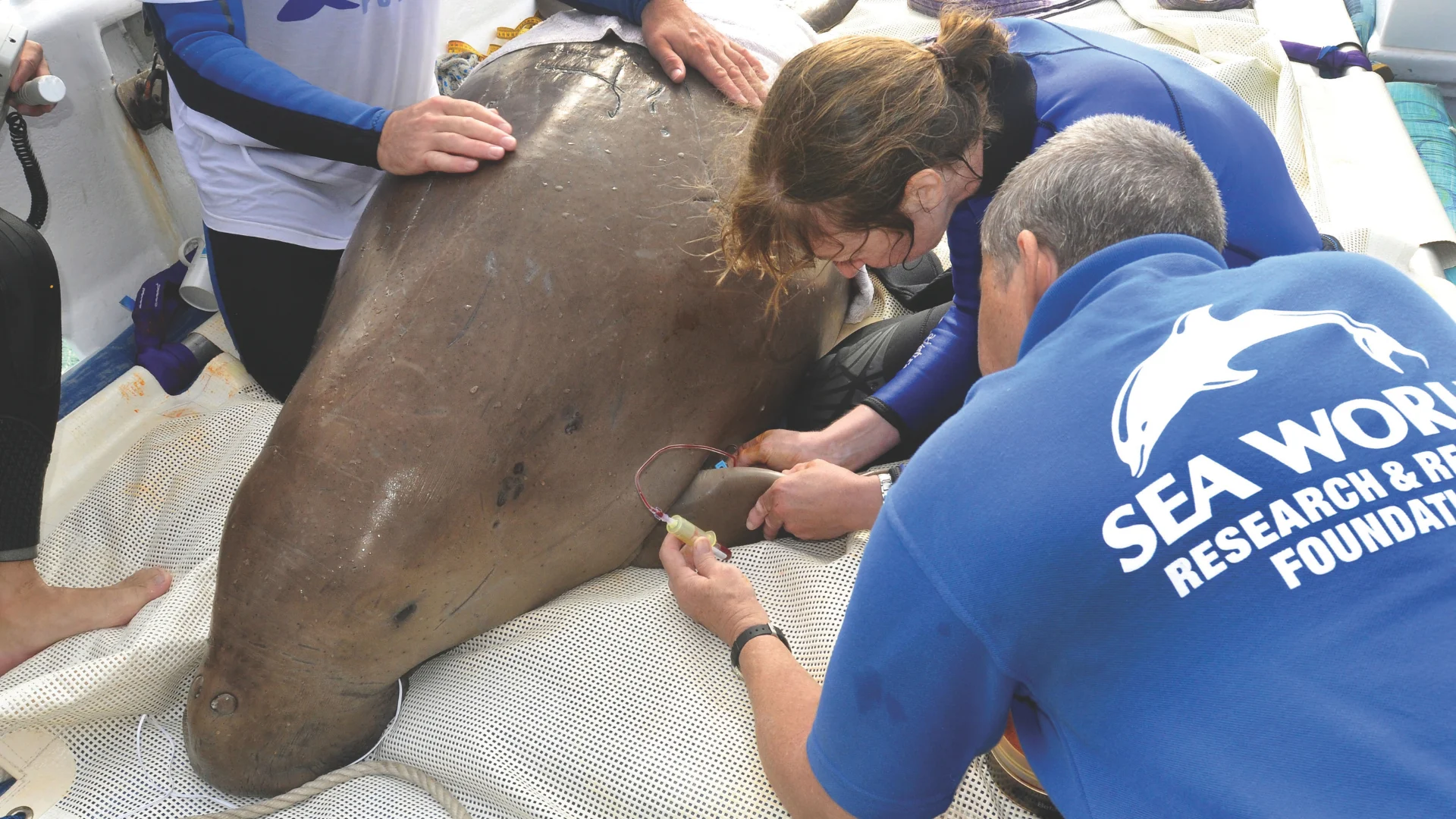
Partnering in Leading Research Initiatives
With the addition of the scientific advisory committee in 1993, the Sea World Foundation has contributed to over 200 marine research projects relating to aspects of the biology of marine vertebrates and considers applications from both the private and public sectors.
As part of these research initiatives, the Sea World Foundation has given out millions of dollars in grants funding as well as provided in-kind donations to support Australian scientists.
One of the longest running research projects is the annual health assessment on the Dugong population in Moreton Bay which is conducted in conjunction with the University of Queensland.
Sea World Foundation is proud to work alongside various government bodies, volunteer groups and zoological institutions. Every time Sea World Foundation is involved in rescue, research or conservation efforts, a contribution is made to public awareness and scientific knowledge.